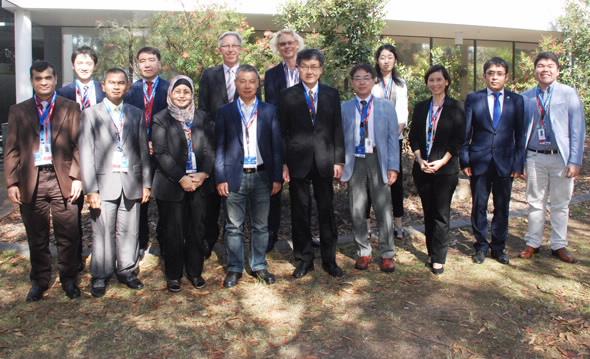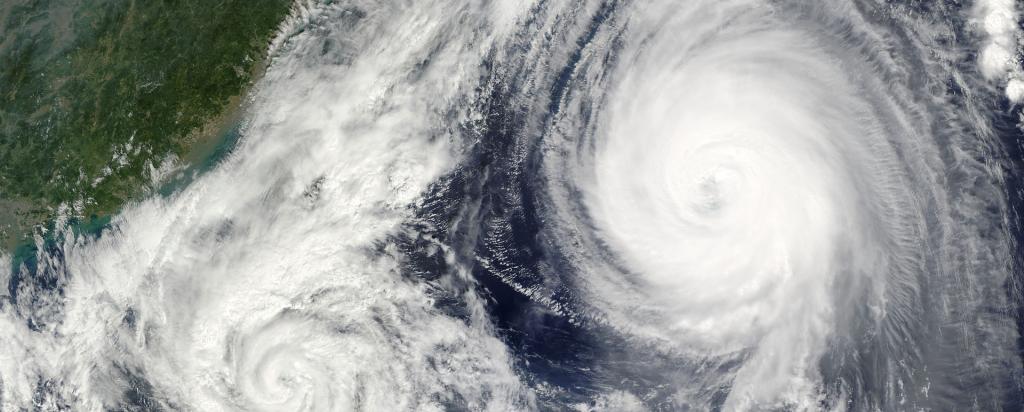

Published on the 2nd November 2017 by ANSTO Staff

An exciting new project, proposed by Australia, brought together the knowledge and expertise of member states of the Forum for Nuclear Cooperation in Asia (FNCA) to address how knowledge of climate changes in the past can help them understand the environmental challenges they face today and will face in future.
The topic was the focus of a FNCA workshop held at the Lucas Heights campus of ANSTO in late October.
Using nuclear and isotopic techniques to analyse environmental archives of climate in lake sediments, corals, tree rings, river beds, limestone caves and bedrock in combination with conventional analytical and ecological methods allows scientists to reconstruct past climate drivers and processes.
“Although climate change is a global phenomenon, the form it takes and its impact on regions around the globe may be quite different,” said Professor Henk Heijnis, Leader, Environmental Research, ANSTO.
“We know the Australian Monsoon, the SE Asian Monsoon, the El Niño Southern Oscillation, the Indian Ocean Dipole and the Inter-decadal Pacific Oscillation are important drivers of climate in the Asia-Pacific region.”
“FNCA representatives from Asia have slightly different areas of focus as well as varying levels of access to nuclear techniques.”
“Part of our agenda is to share experience, expertise and facilities across the Asia-Pacific to understand the complex drivers of Earth’s climate,” said Heijnis, leader of the project who represented Australia in the discussions.
Other participating countries in the workshop were Bangladesh, China, Indonesia, Japan, Kazakhstan, Malaysia, Mongolia, the Philippines and Thailand. All have some history and capability in research on climate change using nuclear techniques.
“At the meeting, participants highlighted past projects, current activities and what future priorities might be for their countries, and for the region — building on research activities or addressing gaps in knowledge, “ said Peter McGlinn, ANSTO Government and International Affairs.
The FNCA meeting included presentations by ANSTO researchers on the use of stalagmites in climate studies, radiocarbon in environmental and climate research, cosmogenic isotopes in climate and landscape, and a tour of ANSTO facilities.
Future studies being considered include:
• an investigation of processes driving carbon cycling in terrestrial ecosystems and their sensitivity to changes in the environment;
• an analysis of coral and marine sediments to reconstruct past sea surface temperatures and salinity and determine the level of carbon deposition;
• identification of the mechanisms of past changes in climate using archaeological and geological remains, such as giant oyster shells, cave formations, sediments and tree rings; and
• an investigation of the impact of climate change on key coastal resources and ecosystems.
Australia will continue to use advanced nuclear and isotopic techniques at ANSTO to support research into the mechanisms and processes of past climate change, using data from key regions in the Asia-Pacific, and weaving the findings into this new FNCA project.